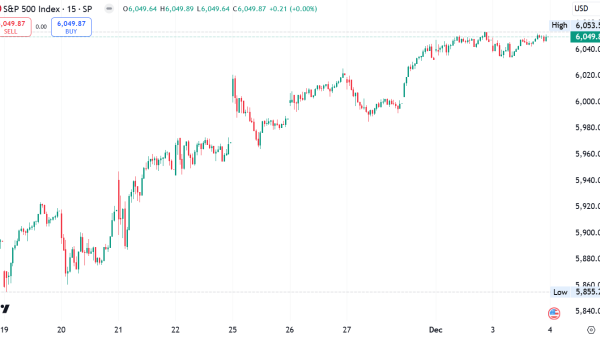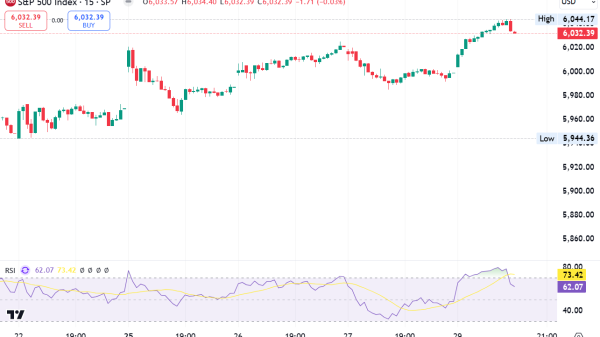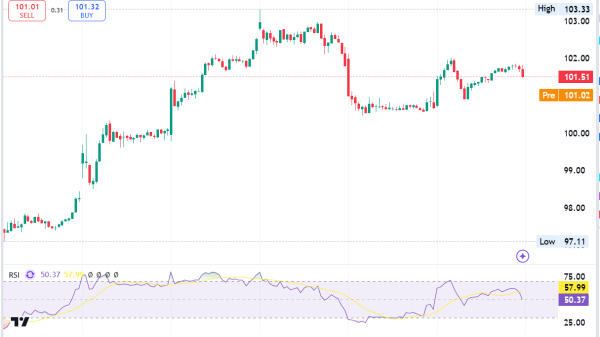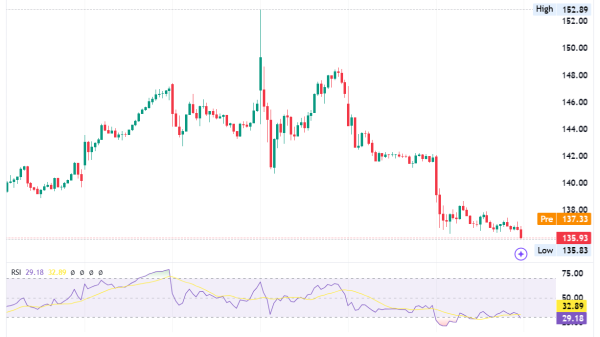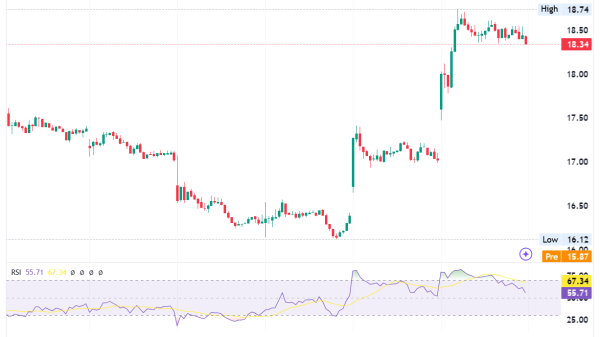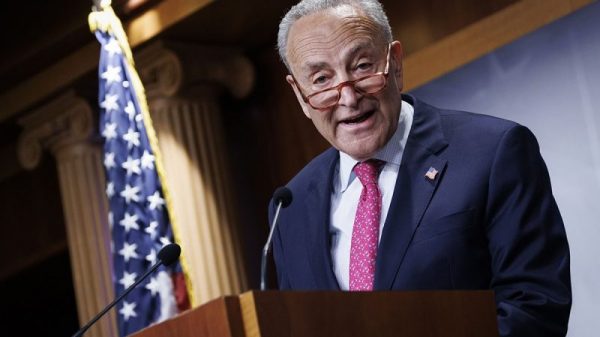A surge of lawmakers calling it quits the past three weeks is on the verge of putting Congress on pace to have more members retire before the next election than in any similar cycle over the past decade. And the implications are huge.
In most cases, retirements deprive their party of a proven fundraiser and vote-getter. And several recent retirements are injecting fresh uncertainty into the tight battles for control of each chamber in 2024. Over the past few weeks, Democrats have lost a three-time winner in ruby-red West Virginia and a handful of swing-district House members who had success in competitive territory.
This month alone, nine members of the House and Senate have said they won’t run for reelection next year. That’s the second-most in any single month going back at least as far as 2011 — and there’s still two weeks left in November. A total of 34 members of Congress have already announced they’re not running again, and that doesn’t count those who plan to quit early or have already resigned.
And there are still more retirements to come. Announcements tend to spike after the holidays, and Rep. Bill Huizenga (R-Mich.), who entered Congress in the 2010 tea party wave election, said retirement chatter is more prevalent on Capitol Hill than at any point in his congressional career.
“People are talking about it — more openly than they ever talked about it,” he said. “Like wondering, ‘Is this really worth my time and effort?’”
For members who are on the fence about running again, there’s a lot of uncertainty about this political environment, and which party is more likely to hold majorities in the new Congress: Former President Donald Trump leads President Joe Biden in the polls, though Democrats have had more electoral success since the end of federal abortion rights.
Members retire for other reasons, too: age, other jobs, their perceived political prospects. Sometimes they’re a reflection of combative internal politics and a toxic work environment.
After all, it’s been a particularly tumultuous and dispiriting stretch on Capitol Hill. A small group of Republicans booted Kevin McCarthy from the speakership and ignited a three-week battle for a replacement — not to mention the struggles in advancing pretty much any spending legislation. House Republicans interviewed this week by POLITICO’s reporters in the Capitol sounded despondent notes about what it’s like to be serving in Congress right now.
“This place, right now, I think it’s childish. I mean, this isn’t a place where you attract the cream of the crop,” said GOP Rep. Garrett Graves, who, himself, had a public flirtation with a bid this year for Louisiana governor before deciding against it.
Retirements don’t just reflect the political environment — they influence it. Retirements can be damaging to the retiree’s party by removing the power of incumbency, including name identification and fundraising experience, from the ballot.
Open seats, recent history shows, are more likely to change hands between the parties. Over the four election cycles from 2014-2020, 34 percent of the seats that changed parties were in cases where the incumbent left office, according to “Vital Statistics on Congress,” which is compiled biennially by the Brookings Institution. But over the same stretch, incumbents declined to seek reelection only 11 percent of the time.
In the Senate, Democrats face a daunting map, needing to reelect incumbents in red and swing states to keep control of the chamber. And even then, they’ll likely need Biden to win the White House to break a 50-50 tie.
In the House, Republicans’ narrow majority is vulnerable — not quite as dire as Democrats’ chances in the upper chamber, but possible mid-decade redistricting in New York could make it even tougher for the GOP to maintain control.
And some of the retirement announcements this month have been particularly consequential.
Sen. Joe Manchin’s decision not to seek another term in West Virginia almost certainly dooms Democrats’ chances of retaining his seat — putting Republicans on the doorstep of reclaiming the Senate majority. Similarly, Democrats could struggle to hold competitive House seats being vacated by Reps. Dan Kildee of Michigan, whose district was essentially split between Biden and Trump in the 2020 presidential election, and Abigail Spanberger of Virginia, who is running for governor in 2025.
Other retirements have come from safe-seat members, such as Reps. Derek Kilmer (D-Wash.) or Michael Burgess (R-Texas), who are either in the twilight of their careers or just sick of the dysfunction in Washington.
And, of course, there’s indicted Rep. George Santos (R-N.Y.), who is on the brink of expulsion after the House Ethics Committee published a scathing account of his alleged criminal conduct during his campaign. He’s said he won’t run again as a concession to his many critics, and it’s possible he’ll announce a resignation later this month. (His seat was likely going back to Democrats either way.)
Still more departures could be on the horizon. Rep. Bill Johnson (R-Ohio) is considering an offer to be president of Youngstown State University. And Rep. John Curtis (R-Utah) met with the National Republican Senatorial Committee this week about a run for the Senate seat being vacated by retiring Sen. Mitt Romney. (Both Johnson and Curtis represent safe House seats that Republicans have virtually no risk of losing next fall.)
Then there’s the curious case of Rep. Pat Fallon. The Texas Republican, who was first elected in 2020, agonized for weeks over whether to run for a third term — or instead for his old North Texas seat in the state Senate.
Fallon, who said the decision led to him losing weight, was facing Texas’ Dec. 11 candidate-filing deadline. But when he first announced Monday he was running for the state Senate, only to reverse course the next day and say he would seek reelection to the House after all, it left members of GOP leadership puzzled.
“Yeah, I don’t know what that was about,” Rep. Richard Hudson (R-N.C.), who chairs House Republicans’ campaign arm, admitted to POLITICO.
Hudson said he hoped Republican members would be more enthused about their congressional service when they return from a Thanksgiving recess that breaks up more than two straight months of time in Washington.
“We’ve been here 10 weeks — that’s too long,” he said. “I think it’d be good for people to go home and spend time with their families. Let’s come back and get to work.”
But that’s not how congressional retirements typically work. In fact, it’s the periods immediately following holiday breaks that have had the greatest number of retirement announcements, according to data covering the six previous election cycles compiled by the website Ballotpedia.
In a two-year election cycle, the most common month for House and Senate retirement announcements is January of the election year, when members have returned after the holidays. Since the 2012 election, an average of 6.5 members have announced their retirements that month. The only month with more retirement announcements than this one — so far — was January 2014, with 10.
The flood of congressional retirements can be an indicator of which party has the upper hand in the next election, though it turns out members of Congress aren’t necessarily savvier than the conventional wisdom. In the past 15 elections, dating back to the 1994 Republican-wave midterms, the party with the fewest House retirements has won control of the chamber 10 times.
But only in eight of the 15 elections has the party with the fewest retirements actually gained House seats, almost a 50-50 split. Take 2020, when House Republicans fretted that Trump would cost the GOP dearly down the ballot.
It didn’t happen. Republicans actually gained over a dozen seats as Trump lost by a smaller-than-expected margin. And that was despite a yawning gap in retirements: 27 House Republicans didn’t run again, compared with only 9 Democrats.
So far this cycle, it’s House Democrats who are leaving in greater numbers. Seventeen are headed for the exits, compared with 10 Republicans. The majority of those Democrats are seeking other offices in 2024: Nine are running for Senate, and one, Rep. Jeff Jackson, is running for North Carolina state attorney general after Republicans eviscerated his seat in redistricting.
Special thanks to Anthony Adragna, Olivia Beavers, Sarah Ferris and Ally Mutnick for their contributions to this column.




















